Cordycepin (3'-Deoxyadenosine) Suppresses Heat Shock Protein 90 Function and Targets Tumor Growth in an Adenosine Deaminase-Dependent Manner
- PMID: 35804893
- PMCID: PMC9264932
- DOI: 10.3390/cancers14133122
Cordycepin (3'-Deoxyadenosine) Suppresses Heat Shock Protein 90 Function and Targets Tumor Growth in an Adenosine Deaminase-Dependent Manner
Abstract
Alterations in metabolism and energy production are increasingly being recognized as important drivers of neoplasia, raising the possibility that metabolic analogs could disrupt oncogenic pathways. 3'-deoxyadenosine, also known as cordycepin, is an adenosine analog that inhibits the growth of several types of cancer. However, the effects of cordycepin have only been examined in a limited number of tumor types, and its mechanism of action is poorly understood. We found that cordycepin slows the growth and promotes apoptosis in uveal melanoma, as well as a range of other hard-to-treat malignancies, including retinoblastoma, atypical teratoid rhabdoid tumors, and diffuse midline gliomas. Interestingly, these effects were dependent on low adenosine deaminase (ADA) expression or activity. Inhibition of ADA using either siRNA or pharmacologic approaches sensitized tumors with higher ADA to cordycepin in vitro and in vivo, with increased apoptosis, reduced clonogenic capacity, and slower migration of neoplastic cells. Our studies suggest that ADA is both a biomarker predicting response to cordycepin and a target for combination therapy. We also describe a novel mechanism of action for cordycepin: competition with adenosine triphosphate (ATP) in binding to Hsp90, resulting in impaired processing of oncogenic Hsp90 client proteins.
Keywords: adenosine deaminase; cordycepin; uveal melanoma.
Conflict of interest statement
The authors declare no conflict of interest.
Figures
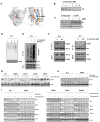
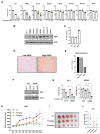
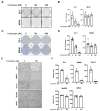
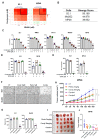


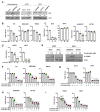

References
-
- Cohen N., Cohen J., Asatiani M.D., Varshney V.K., Yu H.-T., Yang Y.-C., Li Y.-H., Mau J.-L., Wasser S.P. Chemical composition and nutritional and medicinal value of fruit bodies and submerged cultured mycelia of culinary-medicinal higher Basidiomycetes mushrooms. Int. J. Med. Mushrooms. 2014;16:273–291. doi: 10.1615/IntJMedMushr.v16.i3.80. - DOI - PubMed
-
- Lee J.B., Radhi M., Cipolla E., Gandhi R.D., Sarmad S., Zgair A., Kim T.H., Feng W., Qin C., Adrower C. A novel nucleoside rescue metabolic pathway may be responsible for therapeutic effect of orally administered cordycepin. Sci. Rep. 2019;9:15760. doi: 10.1038/s41598-019-52254-x. - DOI - PMC - PubMed
-
- Yao W.-L., Ko B.-S., Liu T.-A., Liang S.-M., Liu C.-C., Lu Y.-J., Tzean S.-S., Shen T.-L., Liou J.-Y. Cordycepin suppresses integrin/FAK signaling and epithelial-mesenchymal transition in hepatocellular carcinoma. Anti-Cancer Agents Med. Chem. (Former. Curr. Med. Chem.-Anti-Cancer Agents) 2014;14:29–34. doi: 10.2174/18715206113139990305. - DOI - PubMed
LinkOut - more resources
Full Text Sources
Research Materials

